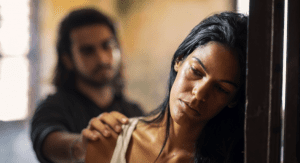
Advocates for battered women and sexual assault survivors say they’re shocked that the 112th Congress adjourned without taking up a bill that would have reauthorized the Violence Against Women Act.
The law, sometimes called VAWA, tries to stop domestic violence, rape and stalking by a combination of strengthening the criminal justice system’s response to such crimes and providing more services to victims. Advocates say Florida, with a large population of immigrant women who are often at higher risk for violence in relationships, is particularly likely to see a spike in such problems.
The act has been reauthorized twice and was traditionally bipartisan – until this year. In April, the U.S. Senate voted 68-31 to pass a reauthorization bill by Sens. Patrick Leahy, D-Vermont, and Mike Crapo, R-Idaho. The House, though, balked at the Senate’s new protections for undocumented immigrants, Native Americans and lesbian/gay/bisexual/transgender people, and barely passed its version without them in May, on a party-line vote of 222 to 205.
With no further action the bill officially died.
“That this has recently happened is frankly confounding,” said Robin Hassler Thompson, a senior policy analyst at Florida State University’s Center for the Advancement of Human Rights. “It’s confounding in a year when we know how important it is to address issues of violence, and it comes at a time when we have a heightened attention to the issues that the Violence Against Women Act covers.”
Provocative comments about rape in the 2012 election season sank the U.S. Senate candidacies of former Congressman Todd Akin, R-Missouri, and Richard Mourdock of Indiana.
Advocates say when the law fails to protect some populations, it leaves them more vulnerable.
“Abusers know there are cracks in the system, and they leap through them every day,” said Linda Osmundson, longtime director of Community Action Stops Abuse (CASA), the battered women’s shelter in St. Petersburg.
In Florida, with its large immigrant population, undocumented women are at heightened risk, she said.
“A lot of what we’re seeing around immigrant/trafficking populations – because they’re intermingled, particularly in Florida – is Americans bringing immigrant women here, not getting them green cards, having children with them and threatening them with deportation,” Osmundson said. “That’s a unique form of abuse that we see particularly in Florida that affects the immigrant population and borders on trafficking.”
“The fact that this act is held up where it addresses specific populations that are in our state – it’s quite disgraceful,” said Hassler Thompson. “And we know that Florida is a state that has a large immigrant population. I’m hoping that this next new Congress will take a look at this very important act and pass it.”
An aide to Leahy’s Senate Judiciary Committee confirmed that he will introduce the reauthorization bill early in the 113th Congress, which was sworn in Thursday.
Native Americans were specified in the reauthorization bill because women and girls living on tribal lands have little or no recourse if they’re abused by non-tribal men.
“More than 80 percent of their abusers are non-tribal,” said Paulette Sullivan Moore of the National Network to End Domestic Violence. According to the White House, which supports the added protections, 34 percent of Native American women are raped in their lifetimes, 39 percent are victims of domestic violence, and on some reservations, they are murdered at more than ten times the national average.
Advocates say LGBT victims experience domestic violence at roughly the same rate as the general population, but are often turned away when seeking help. According to a 2010 survey by the National Coalition of Anti-Violence Programs, 45 percent of LGBT victims were denied services when they sought help from a domestic violence shelter, and nearly 55 percent were denied protection orders.
The failure to reauthorize VAWA doesn’t affect its current funding.
Leisa Wiseman of the Florida Coalition Against Domestic Violence said “it goes without saying” that VAWA should be reauthorized, “but because the funding is in place, we shouldn’t see any type of backlash, any more than you would with any type of funding.”
Florida funds its domestic violence services primarily through a trust fund based on marriage and divorce fees, Wiseman said, along with general revenue and Temporary Aid to Needy Families. The state also gets $10.3 million a year in combined VAWA and Family Violence Prevention Services Act funding.
Wiseman said the state’s domestic violence shelters turned away 3,471 people in Fiscal Year 2011-2012.
by Margie Menzel


